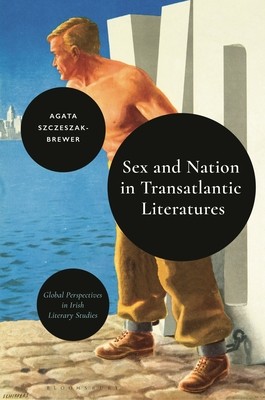
- We will send in 10–14 business days.
- Author: Agata Szczeszak-Brewer
- Publisher: Bloomsbury Academic
- ISBN-10: 1350323330
- ISBN-13: 9781350323339
- Format: 15.6 x 23.4 x 1.6 cm, hardcover
- Language: English
- SAVE -10% with code: EXTRA
Sex, Nation, and Transatlantic Literatures (e-book) (used book) | bookbook.eu
Reviews
Description
Nationalist and tribal cohesion in Ireland, South Africa, the US and elsewhere often relies on an absence of female and gender-nonconforming bodies in the public life. Yet, despite the prevailing pressures to produce patriotic narratives, Irish writers-as well as others across the globe-have remained critical of institutionally sanctioned "national" literatures and refused to use the gender-normative language prescribed by so-called patriots.
Staging a vital counter-narrative to global nationalist discourses, this book explores how 20th and 21st-century postcolonial literatures overtly and implicitly criticize hetero-normative definitions of nationhood, weaving a trans-national and trans-Atlantic network of influences despite pronounced geopolitical and cultural differences. With wide geographical scope and a comparative approach, Szczeszak-Brewer delves into the metaphorical currency of male impotence and sexual aggression in nationalist narratives. She also examines the place of gender-nonconforming characters in literature from Ireland, the US, Poland, France, Britain, South Africa and Senegal, in the work of writers including: James Joyce, Witold Gombrowicz, Jean Toomer, Bessie Head, Zoë Wicomb, J. M. Coetzee, Andrea Levy, Patrick McCabe and David Diop.
EXTRA 10 % discount with code: EXTRA
The promotion ends in 17d.22:01:38
The discount code is valid when purchasing from 10 €. Discounts do not stack.
- Author: Agata Szczeszak-Brewer
- Publisher: Bloomsbury Academic
- ISBN-10: 1350323330
- ISBN-13: 9781350323339
- Format: 15.6 x 23.4 x 1.6 cm, hardcover
- Language: English English
Nationalist and tribal cohesion in Ireland, South Africa, the US and elsewhere often relies on an absence of female and gender-nonconforming bodies in the public life. Yet, despite the prevailing pressures to produce patriotic narratives, Irish writers-as well as others across the globe-have remained critical of institutionally sanctioned "national" literatures and refused to use the gender-normative language prescribed by so-called patriots.
Staging a vital counter-narrative to global nationalist discourses, this book explores how 20th and 21st-century postcolonial literatures overtly and implicitly criticize hetero-normative definitions of nationhood, weaving a trans-national and trans-Atlantic network of influences despite pronounced geopolitical and cultural differences. With wide geographical scope and a comparative approach, Szczeszak-Brewer delves into the metaphorical currency of male impotence and sexual aggression in nationalist narratives. She also examines the place of gender-nonconforming characters in literature from Ireland, the US, Poland, France, Britain, South Africa and Senegal, in the work of writers including: James Joyce, Witold Gombrowicz, Jean Toomer, Bessie Head, Zoë Wicomb, J. M. Coetzee, Andrea Levy, Patrick McCabe and David Diop.


Reviews